In-Store QR Codes & Custom Mobile Web App
A touch-free, smartphone solution Drive customers to a touchless online menu, social media channels, Google reviews, & build a database of customers to text with our dynamic QR Code Program.
Quickly create textALERT campaigns or schedule custom automated texts sent automatically to customers at pre-determined intervals, such as five minutes or one hour after sign-up.
MMS is a great way to wow your customers with a picture or a fun gif. It’s also a great way to show off food or products which increase the response rate up to 25%.
Don’t need to say a lot? SMS is a quick and efficient way to get your message out.
With automated texts you can map out SMS & MMS’s from the time a customer signs up. For example, 1 hour after sign-up you can send them an MMS with links to your social media & website or even ask for their birthday to celebrate their big day.
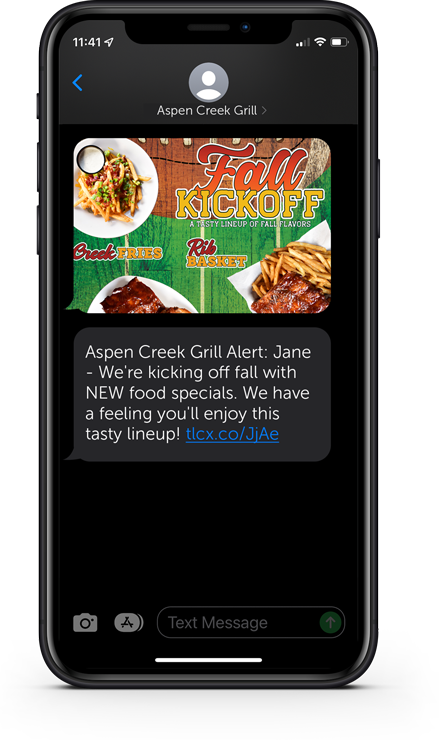
Building Customer Loyalty & Driving Repeat Sales is as Easy as 1-2-3
Customers can sign-up for your program in multiple ways: Keyword Opt-in Program, Sign-up/Loyalty Kiosk, Mobile Web App & In-Store QR Codes
Send targeted text message campaigns to customers based on custom parameters such as store location, keyword responses, sign-up time frame and many more by using the simple, intuitive web portal
Track every campaign, click, check-in, offer redemption and so much more by using the merchant dashboard and Weekly Email Reports.
This program consists of three main aspects and we have the tools to make each work for you to make it successful.
Attracting Customers
Lightning Fast Kiosk QR Code Program Mobile Web App Keyword Opt-in Program SMS & MMS Campaigns Social Media Engagement Mini-URLs
Retaining Customers
Digital Punch Card "We Miss You Offer" Trigger-based Automated Texts Birthday Club Anniversary Club Bounce Back Offers
Other Benefits
Custom Branding Custom Mini-URLs Trackable Offers Mobile Coupon Barcode Redemptions Compliance Tools Map Linking Jobs App Google Reviews
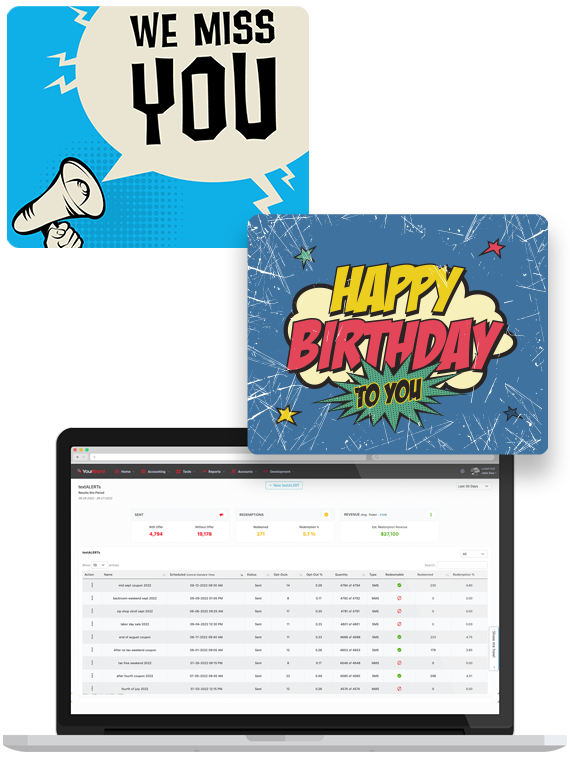
Success with text marketing starts by effectively building a large database of customers that want to receive texts. We have multiple ways to ensure you build a strong database of customers.
A touch-free, smartphone solution Drive customers to a touchless online menu, social media channels, Google reviews, & build a database of customers to text with our dynamic QR Code Program.
Create a keyword campaign and promote it online using your website, social media sites, in-store print materials or any other preferred advertisement methods.
Grow your text contact list by making it easy for consumers that are already checking out your website, social media channels, and email subscriptions to opt in to receive text messages via web forms.
Fast & Easy Sign-up With the Ever Loyal Marketing cellular-enabled custom loyalty kiosk you’ll increase your sign-ups as much as 10x. The kiosk should be placed at your point-of-sale, hostess station, etc.
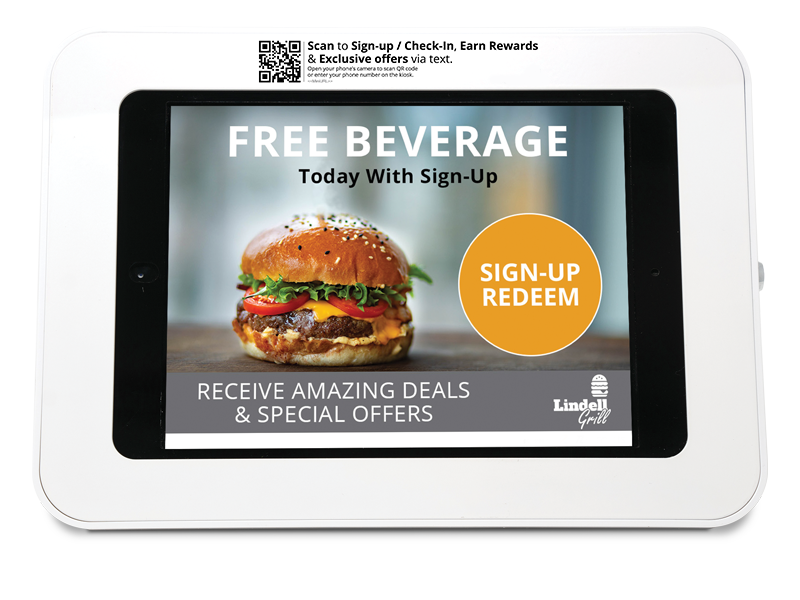
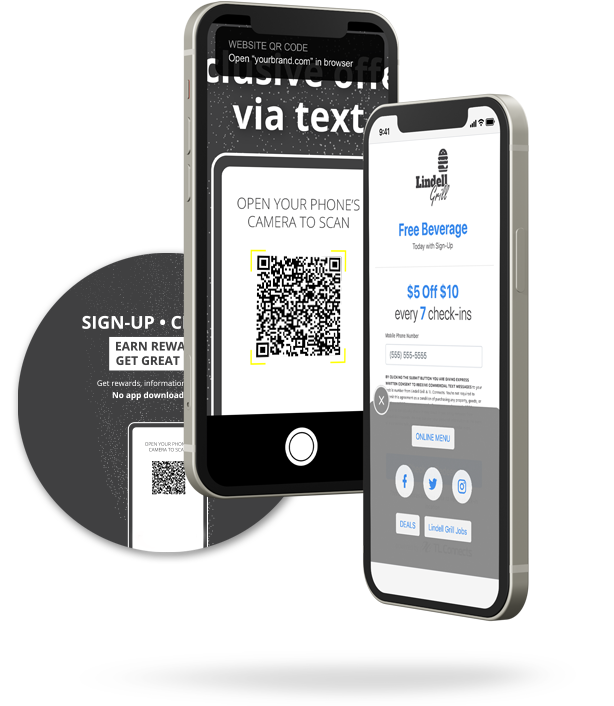
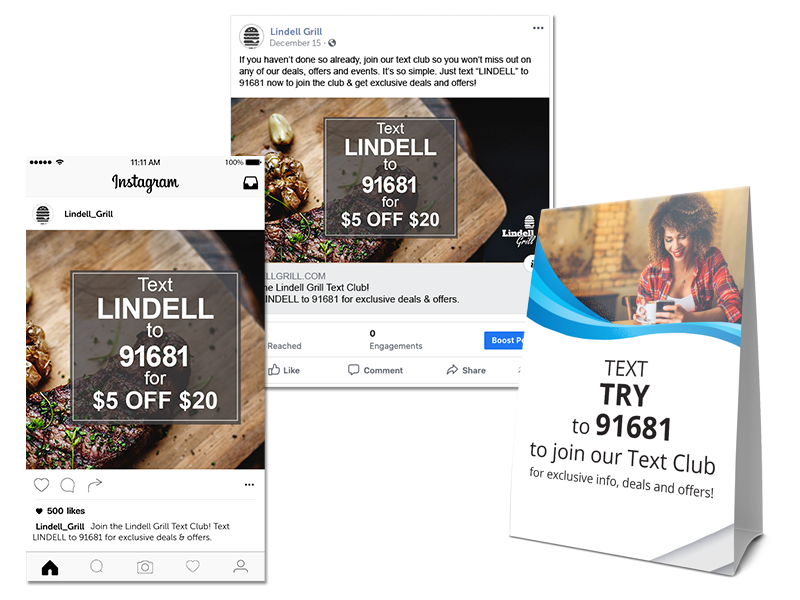

Open Rate of a text message
Avg. click-through rate of text message links
Text messages opened within 3 minutes
Higher open rate than e-mail
Use the In-Store Sign-Up & Loyalty Kiosk along with the Custom Mobile Web App for fast & easy sign-ups.
What can we help you with?
SMS (short message service) and MMS (multimedia message service) are both types of text messages. SMS is the standard text style of text messages that includes up to 160 characters and MMS can include pictures, video, sounds and up to 800 characters.
To Opt-In is to join a list. This can be done by entering a phone number into your Mobile Web App or sending a text message containing your KEYWORD to your number, (844-777-1390), then replying "YES" to the corresponding message. The "YES" text signifies that a customer has asked you to send them messages in the future.
We use industry standard encryption to ensure security within our systems and follow all TCPA guidelines.
We work with all major carriers across the U.S. and Canada.
An SMS message is limited to 160 characters in the U.S. and Canada. MMS messages are limited to 800 characters each. This means you can include more details to make your marketing campaigns more informational and effective. A character includes letters, numbers, spaces, symbols, and punctuation.
Still have a question? Ask your question here
Whether you’re ready to work with Ever Loyal Marketing, have questions or want to leave a comment, give us a call or email and we will be happy to hear from you!
Mon - Fri 9:00 AM - 5:00 PM EST
Your message has arrived! We'll contact you shortly.